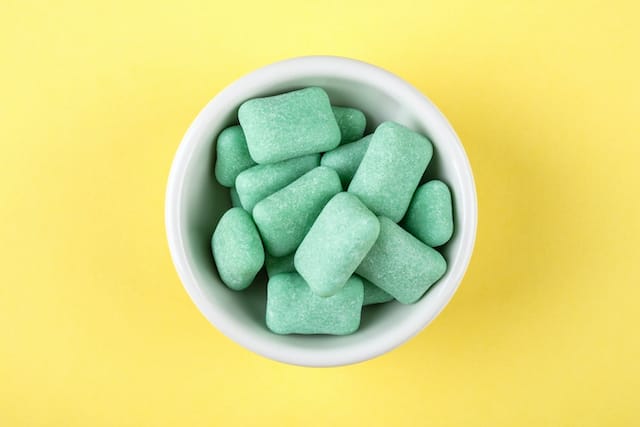If you suffer from a dry, cottony-feeling mouth, you are not alone. Many adults suffer from dry mouth, but there are several options you can try at home to relieve the discomfort and prevent further oral health issues. Read on for 10 tips for dry mouth.

10 Home Remedies For Dry Mouth
What is Dry Mouth?
Dry mouth occurs when you don't have enough saliva in your mouth to perform its beneficial functions. Saliva washes away food particles that may get lodged in your teeth. It also protects your teeth from the acids in foods and drinks. Without this protection, your teeth are more vulnerable to decay and gingivitis (inflammation of the gums).
Dry Mouth Remedies
Dry mouth can develop for many reasons: medications, nutritional deficiencies, stress, and more. Your dentist or physician can help you pinpoint the cause of your dry mouth and treat the cause. However, there are some easy dry mouth remedies you can do at home to help ease your symptoms.
2. Suck on Sugar-Free Candies
A research study published in the Journal of Pharmaceutical Sciences and Research notes that using sugar-free candies is highly recommended for all patients with oral complications, especially dry mouth and thirst. . .
3. Chew Sugar-Free Gum
The Indian Dental Association suggests to use sugar free gums. It is best to chew soon after eating. Chewing for about fifteen minutes removes food debris, plaque and stimulates the flow of saliva. Be sure to chew a sugar-free gum, preferably recommended by your dentist, which promises that the gum holds true to its label claims to stimulate saliva.
5. Breathe Through Your Nose
Breathing through your mouth can increase dryness, especially if you're breathing through your mouth while you sleep. If you're unable to breathe this way due to allergies or congestion, speak with your healthcare provider about taking care of allergies, congestion, or sleep issues.
7. Quit Smoking
A research article published in the IOSR Journal of Dental and Medical Sciences notes that smoking is linked to a higher risk of dry mouth, dental and gum diseases. If you're having trouble quitting smoking — and many do — ask your dentist or physician for advice.
9. Over-the-Counter Saliva Replacement Products
There are sprays, rinses, and specially-formulated toothpaste that help keep your mouth moisturised. Sprays are convenient because they're portable and take only a second to provide relief. Most products can be used as often as needed or as your doctor recommends.
10. Get Your Vitamins
If dry mouth has caused further oral health issues like inflammation or mouth sores, ensuring your immune system is healthy can prevent infection. According to a report published in the Research Journal of Pharmacy and Technology, Vitamin C, also called ascorbic acid, helps to maintain healthy collagen in the skin, repair damaged tissue, promote healthy teeth and bones, and boost the immune system. The Integrated Journal of Social Sciences notes that vitamin B6 helps to improve the immune response by increasing the antibodies’ production. Talk to your doctor about taking a B-complex supplement with thiamine, niacin, riboflavin, and B6.
Dry mouth is an uncomfortable condition with many causes. Still, with the help of your dentist and these at-home remedies, you can learn how to manage the symptoms. Take extra care of your oral health and talk with your dentist to find the best dry mouth home remedy to keep your mouth feeling comfortable.
This article is intended to promote understanding of and knowledge about general oral health topics. It is not intended to be a substitute for professional advice, diagnosis or treatment. Always seek the advice of your dentist or other qualified healthcare provider with any questions you may have regarding a medical condition or treatment.





